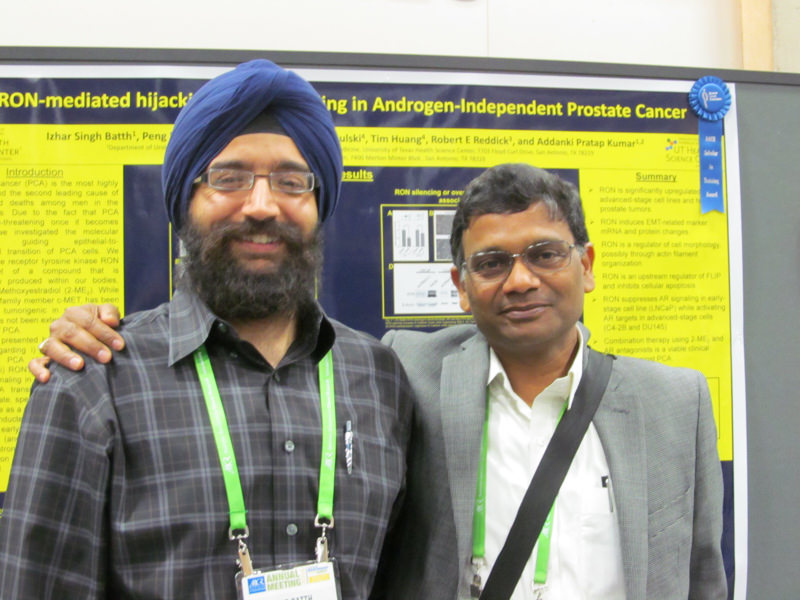Congrats Dr. Izhar Batth: Newest Graduate of the Cancer Biology Track

 The Pipette Gazette recently had the opportunity to interview, Dr. Izhar Batth, a doctoral student in the Integrated Biomedical Science (IBMS) Graduate Program- Cancer Biology Track, working under the mentorship of Dr. Addanki Pratap Kumar. The title of his thesis was “New Role for RON in Prostate Cancer.
The Pipette Gazette recently had the opportunity to interview, Dr. Izhar Batth, a doctoral student in the Integrated Biomedical Science (IBMS) Graduate Program- Cancer Biology Track, working under the mentorship of Dr. Addanki Pratap Kumar. The title of his thesis was “New Role for RON in Prostate Cancer.
Dr. Addanki Pratap Kumar, Izhar’s mentor, had the following to say:
“Izhar Singh Batth is a budding next generation cancer researcher. His dissertation work led to the surprising discovery regarding the transcriptional role of a receptor tyrosine kinase that contributes to prostate
cancer treatment resistance. His findings will have significant translational
impact in the clinical management of this devastating disease. For his
contributions to the prostate cancer research field, Izhar received the American
Association for Cancer Research-Prostate Cancer Foundation (AACR-PCF)
Scholar-In-Training Award in 2014. He also received several local awards for
best poster and platform presentations. I am honored to have had the
opportunity to mentor Izhar and am confident that he will make major
contributions to our understanding of cancer biology in the future.”

And of course, the Pipette Gazette (PG) asked him three questions:
[PG] What did you learn during your graduate student career?
[Dr. Batth] I studied prostate cancer, so I learned a great deal about how it developed and formed. I also learned about the importance of signaling pathways and to challenge scientific dogmas if your own work supports it.
[PG] What’s next?
[Dr. Batth] Either an industrial position or a postdoctoral fellowship
[PG] Any advice for your fellow graduate students?
[Dr. Batth] I had many problems in the beginning of my graduate research project, but I got past them by staying determined and being honest about my own failures and mistakes with my PI. I would suggest honesty and transparency with your mentor as most important, even if you think you will get in trouble.
Second, always believe in your own work. If you know you did your experiment properly and followed the protocol then your data is correct, even if it goes against conventional wisdom.
